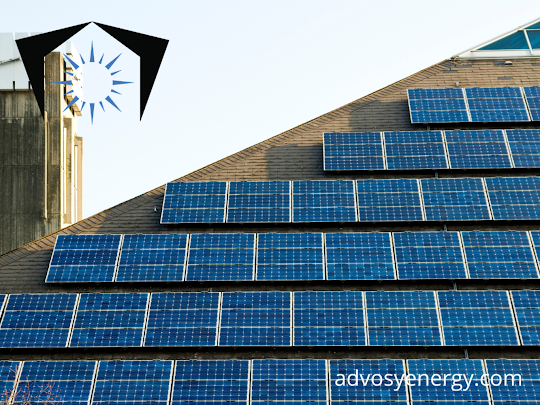What is the future of SOLAR benefits PUBLIC Health and the Environment
Many people are familiar with solar power and its status within the "green energy" category. However, they may not know much about the specific benefits to public health and the environmental impact that solar power can bring. They're much more extensive than you may think.
How does solar power impact the emission of greenhouse gases? What impact does it have on the ground and water supply? What are you able to do to better your well-being?
If you answer these questions, you'll be able to identify new energy sources that serve your community, you and the natural environment. This is your quick guide.
CARBON DIIOXIDE EMITIONS
Carbon dioxide in the atmosphere has a significant impact on the climate. It is absorbed by the atmosphere, stays there for a long time before radiating heat towards the Earth, warming the planet continuously.
Climate change can have a variety of negative consequences for public health. Climate changes make it easier to spread infectious diseases, exacerbates natural disasters and also increases food insecurity and droughts. You can lessen the risk by switching to solar power.
Generating electricity from solar panels prevents air pollution since they don't require fuel that emits carbon dioxide to run.
Renewable energy sources will eventually replace fossil fuels that emit carbon dioxide. This will stop the use of petroleum and coal which release massive greenhouse gases into our atmosphere.
METHANE EMPISSIONS
A lot of people are aware of carbon dioxide and the connection to climate change. Methane is not as well-known.
Methane stays longer in the air as compared to carbon dioxide. It also traps more heat and radiation. Methane's environmental impact is more than that of carbon dioxide, pound-for-pound.
The atmosphere is flooded with methane from the burning of natural gas and petroleum. No methane is required to transmit solar energy sources or use. The more solar energy that you make use of, the less natural and petroleum gas you are using as well as the lesser methane that you create.
GROUND POOLLUTION
The soil can be damaged by non-renewable energy sources in many ways. Oil can spill into soil, harming animals and plants. Likewise, natural gas fracking can harm habitats as well as several layers of earth.
Nuclear power doesn't contribute to carbon dioxide levels in the atmosphere. However, the radioactive substances used in nuclear power stations can be harmful to the environment. They may make areas inhospitable or cause radiation poisoning.
Ground pollution isn't caused through solar panels. Any rain that is washes off of solar panels won't draw their substances into the ground.
Yes, solar panels contain lead and other elements that can be dangerous. However, the average lifespan for solar panels is 25 years, so their threat is low. It is also possible to recycle your panels in the event that they start to degrade.
Installing a solar panel over your lawn will stop the grass below from getting water and sunlight. Make sure that you put your panels in a place which does not restrict the growth of plants. If plants grow under it, make sure to give it a little more water.
Air Pollution
The World Health Organization estimates that 4.2 million people die prematurely due to pollution from the air that is emitted by outdoor sources every year. The main cause of air pollution is burning of oil. Oil contains a number of harmful chemicals that have carcinogenic effects.
Because coal contains chemicals like sulfur dioxide, it may cause lung damage if inhaled. When they reach your bloodstream, coal particulates can cause harm to your organs.
Air pollution can also have harmful affects on your eyes. They may cause short-term and long-term vision damage. Solar panels aren't believed for their ability to pollute the air. The substances they contain aren't released into the air , even in the most extreme circumstances of the possibility of a fire.
TRANSMISSION and STORAGE
Urban planners attempt to locate power stations near homes, but some that are nearby are usually away from homes.
This means that planners string up transmission lines that are long to transmit electricity across the town. A small amount of electricity is lost in transmission, which means that the power plant needs to consume more fuel in order to compensate.
Solar installations panels Scottsdale systems don't require extensive transmission lines and will only produce the amount of energy you need.
The excess energy is transferred into batteries to be stored for power outage situations. Or you tap into batteries' power stored in the night when your solar panels aren't operating. You'll ultimately avoid burning fossil fuels and significantly reduce the carbon footprint of your home.
WATER USAGE
Another source of renewable energy is hydropower. It doesn't pollute the air or create CO2 emissions. It's dependent on rivers and other natural water bodies that can cause harm to ecosystems as well as restrict the flow of water to people.
Solar panels don't affect water usage in any way. It is possible that you don't even have to use water to clean your panels, as rain is able to cleanse any buildup of dust, dirt or other debris that may be on them.
solar chandler
solar panels Albuquerque
north Las Vegas energy
solar company tucson
best solar companies in new Mexico
Advosy Energy
4411 S 40th St Suite D-5 Phoenix, AZ 8540
602-584-8294

